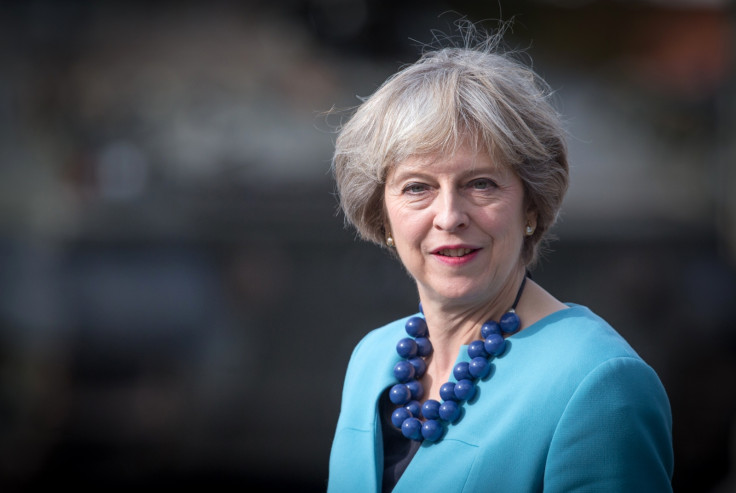Prime Minister Theresa May set to repeal EU act in Queen's Speech in next Brexit step
May hopes to strike the European Communities Act from the statute books before the German elections.

Prime Minister Theresa May announced on Saturday (1 October) that she will introduce a "Great Repeal Bill" in the next Queen's Speech to overturn the act that brought the UK into the European Union. May promised to make the UK "a sovereign and independent country" before an election in Germany next September.
"We will introduce, in the next Queen's speech, a Great Repeal Bill that will remove the European Communities Act from the statute book," she told the Sunday Times.
"This marks the first stage in the UK becoming a sovereign and independent country once again. It will return power and authority to the elected institutions of our country," she continued. "It means that the authority of EU law in Britain will end."
May's vow arrives as the Conservatives meet for their annual conference in Birmingham. She noted that she did not want the issue of Brexit to dominate the conference. "I'm clear that we are not going to be completely consumed by Brexit," May told the Sun on Sunday. "What I want to deliver is real change. To build a country that works for everyone."
The repeal of the 1972 Act will not take effect until Article 50 is triggered, the prime minister said of her plan. May's "Great Repeal Bill" will signify that rulings by the European Court of Justice will cease applying to the UK. All existing EU law will be incorporated into British law by the government, while any legislation deemed unnecessary will be repealed, the BBC reported.
David Davis, the Secretary of State for Brexit, said the government would "take a simple approach" over legislation changes, Sky News reported. "EU law will be transposed into domestic law, wherever practical on exit day," Davis said. "It will be for elected politicians here to make the changes to reflect the outcome of our negotiation and our exit."
According to Reuters, May is expected to trigger Article 50 to formally leave the EU early next year. However, she has said she does not want to reveal her plans before the negotiations begin and ruled out an early parliamentary election, saying it could cause "instability".
© Copyright IBTimes 2025. All rights reserved.






















